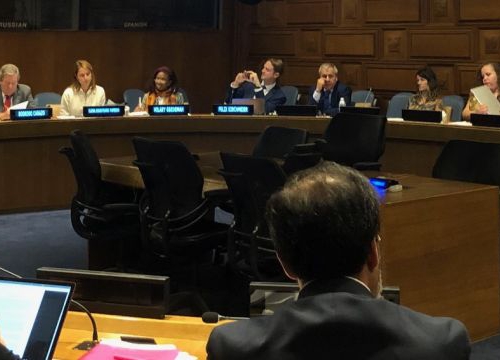Taking the Discussions on the 2020 Treaty Body Review to the Next Level


Geneva Academy
15 October 2019
In order to bring the substantive debates on the future of United Nations (UN) treaty bodies (TBs) from Geneva to the political discussions in New York, the Geneva Human Rights Platform (GHRP) held with the Permanent Missions of Costa Rica and Switzerland a side event at the UN General Assembly (UNGA) in New York.
Before some 50 delegations, panelists addressed issues around the 2020 TB review.
Bringing the Geneva Expertise to New York
The Swiss Ambassador Jürg Lauber opened the event by underlining the importance of linking Geneva and New York. He recognized the ‘non-paper’ prepared by the Geneva mission of Costa Rica and supported by 44 states as an important contribution to the process and as a solid starting point for further intergovernmental deliberations in New York.
Hilary Gbedemah, president of UN TBs chairpersons recalled, along with Elena Kountouri from the Office of the UN High Commissioner for Human Rights (OHCHR), the progress made by UN TBs since 2014 to strengthen and align their procedures.
Key stakeholders, including OHCHR and NGOs, completed the GHRP inputs on the 2020 TB review.
‘As the political process on the 2020 review will, over the coming months, move from Geneva to New York, it was important to present to New York-based diplomats the expertise built-up in Geneva within TB membership, OHCHR, civil society and academia. This will also encourage New York missions to solicit input from their colleagues in Geneva, which does not happen as automatically as one should think’ highlights Felix Kirchmeier, Executive Director of the GHRP.
Next Steps
Following this public event, the GHRP will stay in close contact with the New York missions of Costa Rica and Switzerland and other interested actors in New York to feed more specific points into the discussions, focusing on an outcome resolution of the 2020 TB review process.








